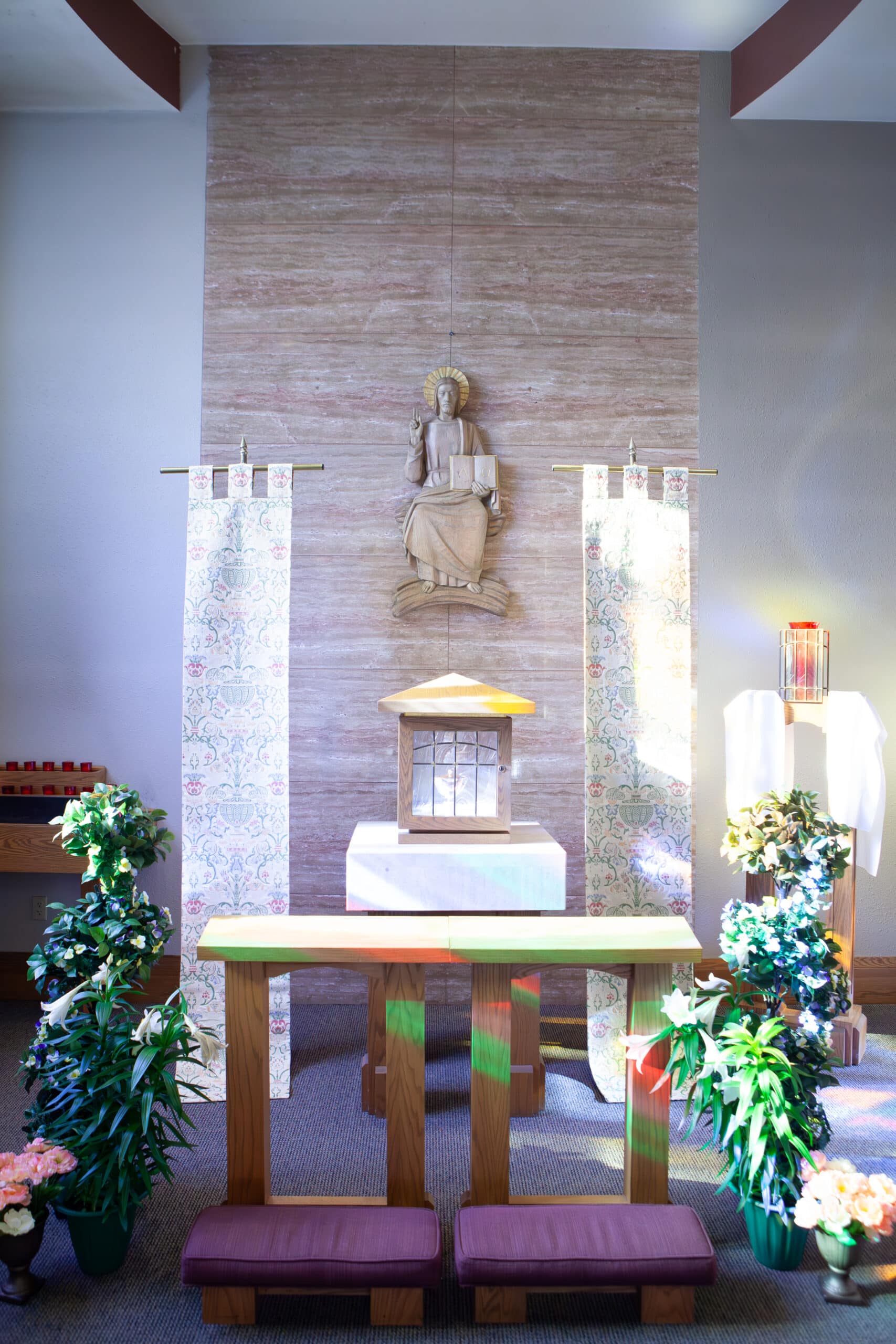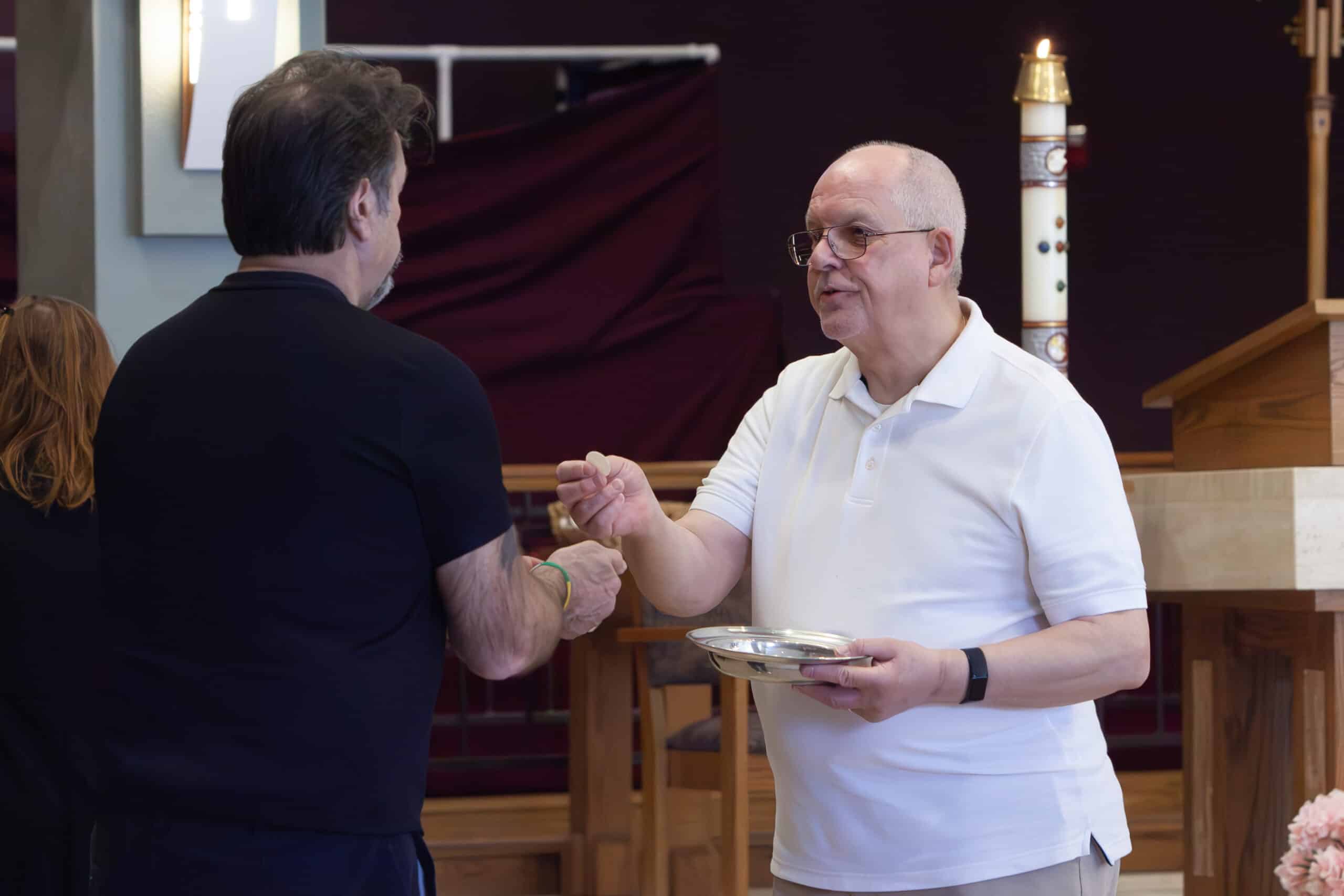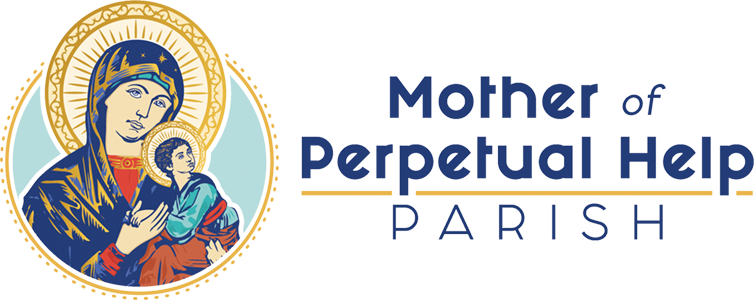The Sacraments

A Sacrament is an outward sign instituted by Christ to give grace.
-1894 Baltimore Catechism
The saving words and deeds of Jesus Christ are the foundation of what he would communicate in the Sacraments through the ministers of the Church.
Guided by the Holy Spirit, the Church recognizes the existence of Seven Sacraments instituted by the Lord. They are the Sacraments of Initiation (Baptism, Confirmation, the Eucharist), the Sacraments of Healing (Penance and the Anointing of the Sick), and the Sacraments at the Service of Communion (Marriage and Holy Orders).
Through the Sacraments, God shares his holiness with us so that we, in turn, can make the world holier.
– USCCB
Sacraments of Christian Initiation
Baptism
In Baptism, the Holy Spirit moves us to answer Christ’s call to holiness. In Baptism, we are asked to walk by the light of Christ and to trust in his wisdom. We are invited to submit our hearts to Christ with ever deeper love.
Eucharist
When Jesus instituted the Eucharist he gave a final meaning to the blessing of the bread and the wine and the sacrifice of the lamb. The Gospels narrate events that anticipated the Eucharist. The miracle of the loaves and fish, reported in all four Gospels, prefigured the unique abundance of the Eucharist. The miracle of changing water into wine at the wedding feast in Cana manifested the divine glory of Jesus and the heavenly wedding feast in which we share at every Eucharist.
Confirmation
Confirmation deepens our baptismal life that calls us to be missionary witnesses of Jesus Christ in our families, neighborhoods, society, and the world. . . . We receive the message of faith in a deeper and more intensive manner with great emphasis given to the person of Jesus Christ, who asked the Father to give the Holy Spirit to the Church for building up the community in loving service.
Sacraments of Healing
Penance and Reconciliation
Jesus entrusted the ministry of reconciliation to the Church. The Sacrament of Penance is God’s gift to us so that any sin committed after Baptism can be forgiven. In confession we have the opportunity to repent and recover the grace of friendship with God. It is a holy moment in which we place ourselves in his presence and honestly acknowledge our sins, especially mortal sins. With absolution, we are reconciled to God and the Church. The Sacrament helps us stay close to the truth that we cannot live without God. “In him we live and move and have our being” (Acts 17:28).
Anointing of the Sick
The Rite of Anointing tells us there is no need to wait until a person is at the point of death to receive the Sacrament. A careful judgment about the serious nature of the illness is sufficient.
When the Sacrament of Anointing of the Sick is given, the hoped-for effect is that, if it be God’s will, the person be physically healed of illness. But even if there is no physical healing, the primary effect of the Sacrament is a spiritual healing by which the sick person receives the Holy Spirit’s gift of peace and courage to deal with the difficulties that accompany serious illness or the frailty of old age.


Sacraments of Service
Matrimony
The Sacrament of Marriage is a covenant, which is more than a contract. Covenant always expresses a relationship between persons. The marriage covenant refers to the relationship between the husband and wife, a permanent union of persons capable of knowing and loving each other and God. The celebration of a wedding is also a liturgical act, appropriately held in a public liturgy at church. Catholics are urged to celebrate their marriage within the Eucharistic Liturgy.
Holy Orders
Ordination to the priesthood is always a call and a gift from God. Christ reminded his Apostles that they needed to ask the Lord of the harvest to send laborers into the harvest. Those who seek priesthood respond generously to God’s call using the words of the prophet, “Here I am, send me” (Is 6:8). This call from God can be recognized and understood from the daily signs that disclose his will to those in charge of discerning the vocation of the candidate.
For more information about Holy Orders, please visit the Archdiocese of Milwaukee’s Vocations webpage.
*All descriptions provided from the United States Catholic Catechism for Adults.
